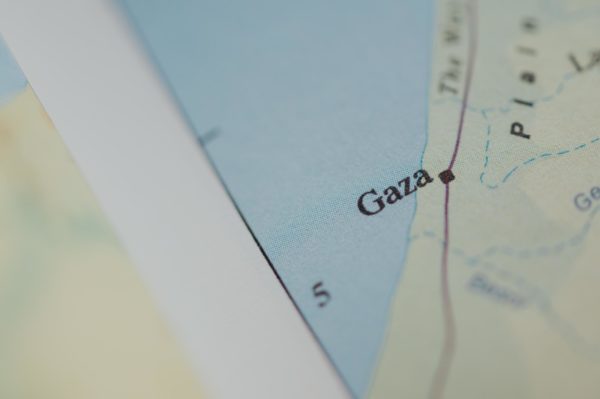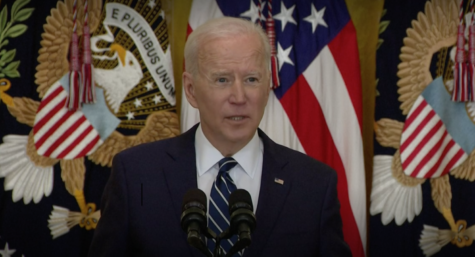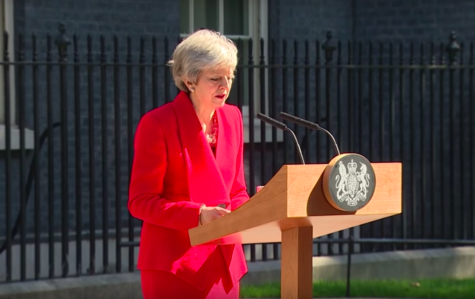Greek cabinet supports call for referendum on bailout
November 2, 2011
ATHENS, Greece — Greece’s cabinet voted Wednesday to support Prime Minister George Papandreou’s call for a referendum as soon as possible on the latest bailout plan, as Europe’s stock markets watched anxiously to see what might happen next.
The vote was unanimous, though some of the ministers expressed criticism prior to casting their votes, CNN affiliate Mega Channel reported.
It came hours before German Chancellor Angela Merkel, French President Nicolas Sarkozy and senior figures from the International Monetary Fund and European Union were to meet Wednesday with Papandreou and his finance minister at an emergency meeting in Cannes, France, ahead of the G-20 summit.
German and French markets rallied Wednesday after tumbling Tuesday on the news of the referendum call, and London’s FTSE also closed slightly higher. The Dow Jones Industrial Average index was up slightly as of lunchtime trading.
Papandreou is seeking public backing from the Greek people for last week’s bailout deal, which took months to reach.
But the move has created turmoil in domestic politics and angered his European counterparts.
A “no” vote could theoretically force Greece to crash out of the euro and send shock waves through the global financial system.
Greek Foreign Minister Stavros Lambridinis told CNN he was confident the Greek people would vote “yes,” and that they were “fanatic supporters” of Europe.
“Everyone is getting a bit tired of doubting the wisdom of the Greek people and their commitment to Europe,” he said, adding that Greece had proven its dedication in the painful measures it has already taken.
Lambridinis said he hoped the referendum would take place as soon as the details of the bailout deal were finalized.
No date has yet been set for the vote. Nor is it clear what the wording might be for the referendum question.
European Commission President Jose Manuel Barroso appealed for national and political unity in Greece Wednesday, saying it was “critically important to have stability” if the bailout deal was to be implemented.
“Without the agreement of Greece to the EU/IMF program, the conditions for Greek citizens would become much more painful, in particular for the most vulnerable. The consequences would be impossible to foresee,” he warned.
The deal would see the country’s sky-high debts cut in half, but it comes with strings attached, which have led to angry demonstrations in the streets of Greece.
Vanessa Rossi, an economics adviser to Oxford Analytica, a global analysis firm, said that frustrating though it was for Europe’s leaders, Papandreou’s decision to call a referendum was “almost inevitable given that the Greek population has continued to protest heavily against the plans agreed (to) in Brussels.”
She warned that the Greek people should be very aware of the consequences if Greece does default on its debt, and that they would undoubtedly suffer greater financial pain.
The prime minister has called a confidence vote, separate to the referendum on the bailout deal, for Friday.
Several of the most senior military leaders in Greece, meanwhile, have been replaced.
The Government Council for Foreign Affairs and Defense, which Papandreou chairs, decided on “sweeping changes in the armed forces’ leadership” on Tuesday, the Athens News Agency reported.
The council replaced the general staff chiefs for the Greek Army, Navy and Air Force, the news agency said. It did not cite a reason for the changes.
Kostas Gemenis, an assistant professor of politics at the University of Twente in the Netherlands, said the news had come as a surprise.
And although the government said it was a long-planned, routine move, its sudden announcement after an extraordinary meeting with the heads of the armed forces makes many doubt that, Gemenis said.
Greek politicians have kept a tight rein on the military since a seven-year military junta was brought to an end in 1974, Gemenis said, but people’s memories are long.
He speculates that the government acted to allay any concern that the military — which seized power in 1967 as the country was anticipating an election — might be planning a repeat of history.
“More than 40 years after these events happened, I don’t think history is going to repeat itself in a serious way, but just people want to be on the safe side and try to prevent even worse things happening,” he said. He added that the media had not treated it as a major event, given the ongoing political and economic crisis, which in turn had a calming effect.
But the news of the bailout referendum rattled Papandreou’s hold on power Tuesday, as a lawmaker defected from his party, leaving him with a majority of only two in Parliament.
Milena Apostolaki, who was an influential figure in the party, said Papandreou had made “an erroneous political decision” in calling for the referendum.
“It jeopardizes the efforts and the painful sacrifices that are made by the Greek people,” she told CNN Wednesday.
“It would set high risk on the European perspective of the country and also divides the nation, and that’s why I believe in these extremely difficult days we only have to contain the crisis and to make all the sacrifices of the Greek people worthwhile. That must be the one and only priority.”
Sarkozy and Merkel issued a terse statement Tuesday saying they were “determined to ensure the full implementation, without delay, of decisions adopted by the summit, which are necessary now more than ever.”
In the United States, White House spokesman Jay Carney struck a similar note, saying Papandreou’s move reinforced the need for Europe “to elaborate further and implement rapidly the decisions they made last week.”
Greece’s former deputy finance minister, Petros Doukas, a member of the opposition New Democracy Party who is not currently in office, told CNN he doubted the referendum would take place.
Papandreou is under enormous pressure from Europe, the markets and opposition forces within Greece to backtrack on the proposal, Doukas said.
He suggested Papandreou would have to call elections or stand down as leader, as Greece was “not governable” with him as prime minister.
Greece’s opposition leader, Antonis Samaras, called Tuesday for a snap election, but it is unlikely he has the votes to force one.
International lenders are demanding that Athens raise taxes, sell off state-owned companies and slash government spending, which would mean firing tens of thousands of state workers.
The Institute of International Finance, a global association representing many of the world’s biggest banks, reaffirmed its commitment Tuesday to the bailout agreement reached last week, saying it would work closely with all parties to implement it.
The planned referendum casts a shadow on the hard-fought deal that would allow Greece to write off as much as 50% of its debts to banks.
The agreement for private lenders to scrap half of Greece’s debt is worth 100 billion euros to Athens, and comes with a promise of 30 billion euros from the public sector to help pay off some of the remaining debts, making the whole deal worth 130 billion euros ($178 billion).
A “no” vote threatens to unravel the deal, which was greeted last week with fanfare as a way to keep debt woes in Greece and other European nations from spilling across other borders, threatening the 17 nations united under the euro currency.
A weekend survey in Greece found nearly 60% opposed the debt deal, but other surveys have shown a more complicated picture.
A survey carried out last week by Kappa Research for the Greek daily newspaper To Vima showed a majority of Greeks wanted a referendum on the international rescue plan, and that more would oppose it than accept it.
But in the same survey, 70% of Greeks wanted to stay in the euro, according to RBS European Economics — a result that may not be possible if they vote “no” on the referendum.
Besides the Greek debt-reduction plan, last week’s European Union deal pledged to quadruple the EU’s bailout fund to about $1.38 trillion and to raise the capital required to help cushion the region’s banks from financial shocks.
















